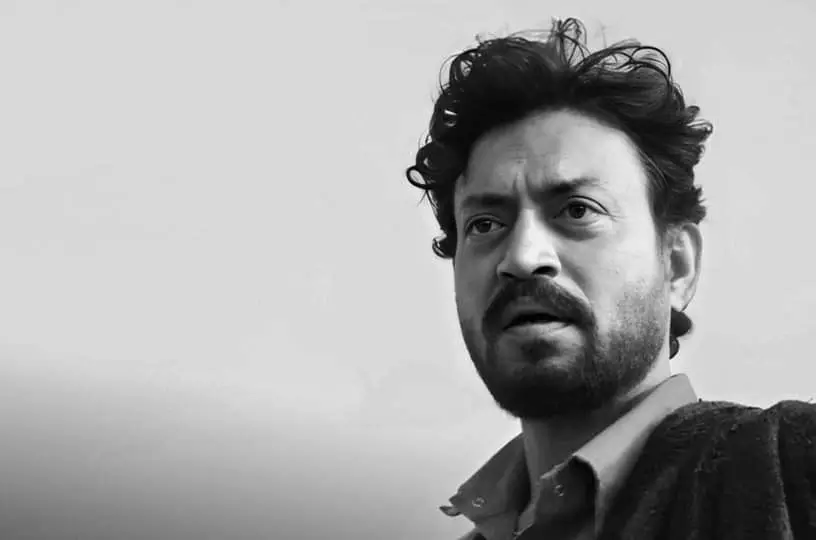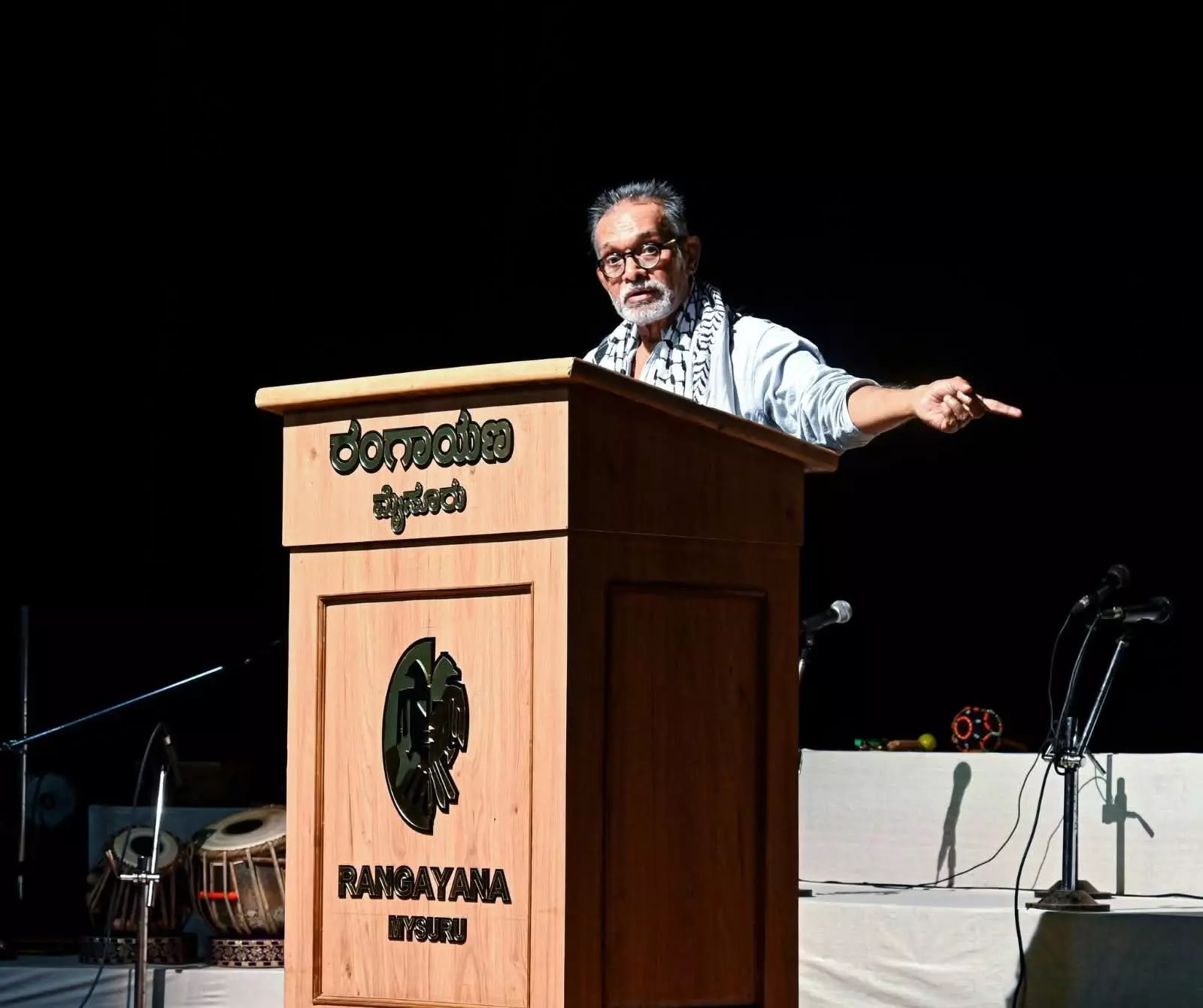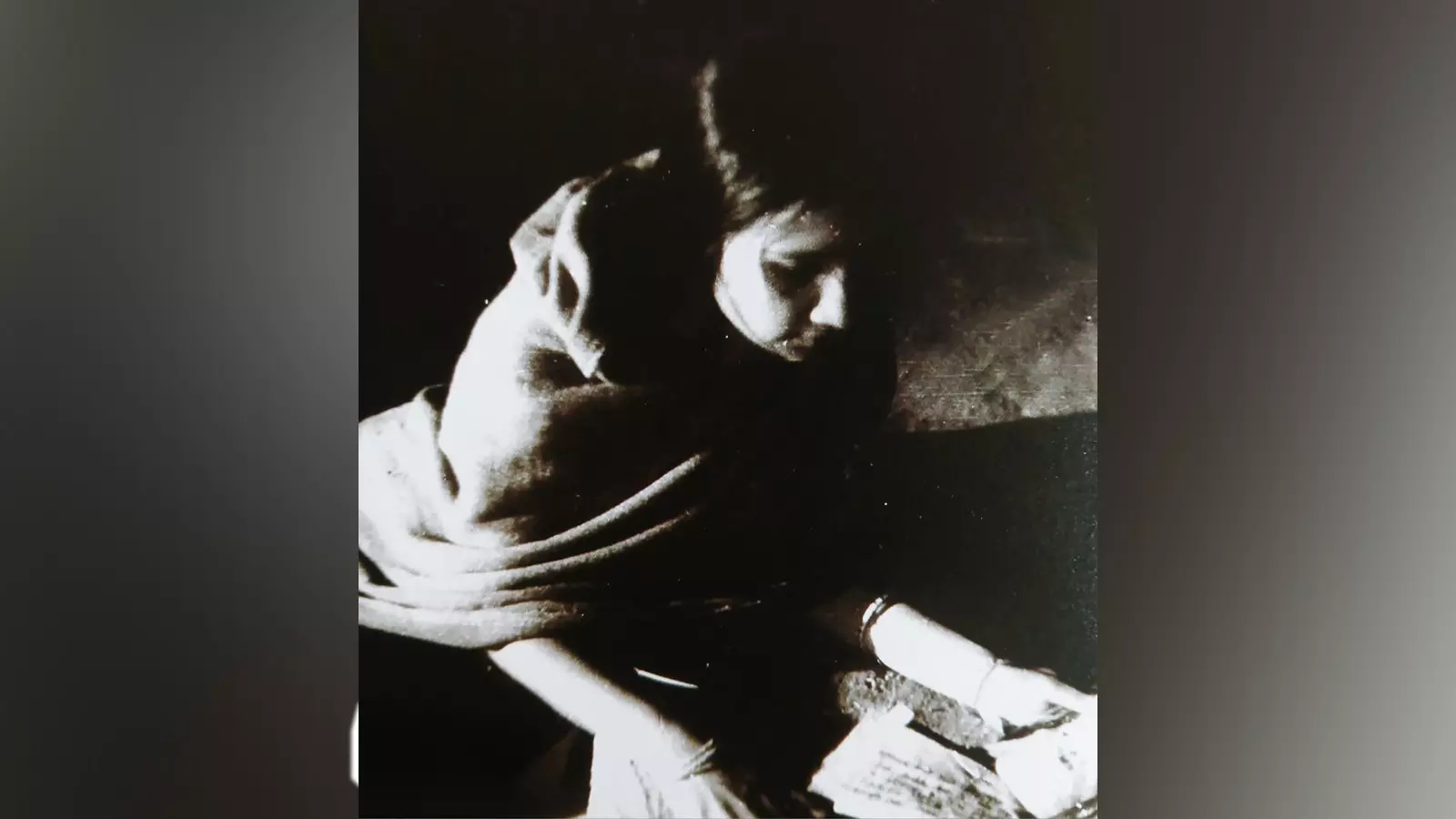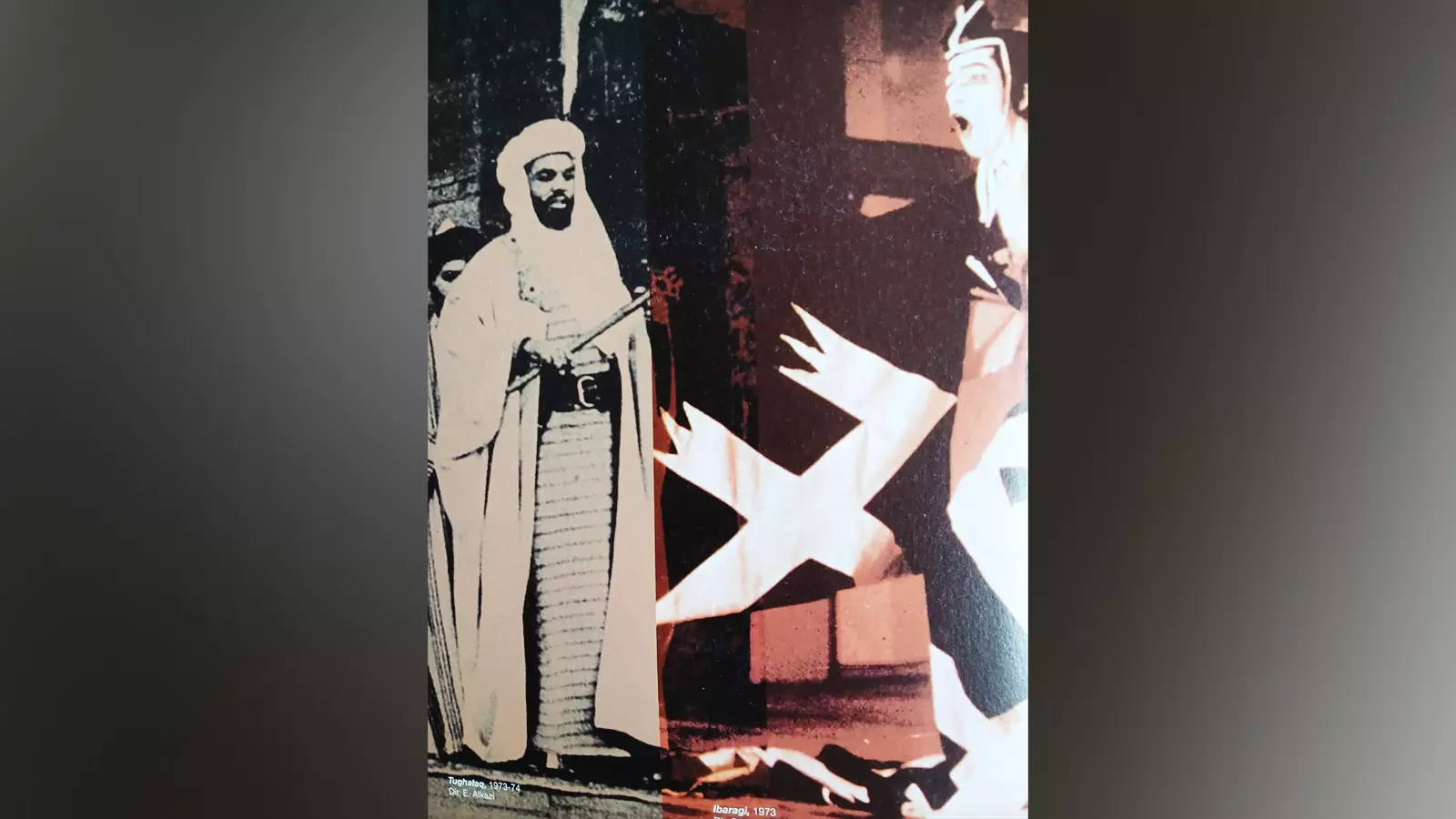
- Home
- India
- World
- Premium
- THE FEDERAL SPECIAL
- Analysis
- States
- Perspective
- Videos
- Sports
- Education
- Entertainment
- Elections
- Features
- Health
- Business
- Series
- In memoriam: Sheikh Mujibur Rahman
- Bishnoi's Men
- NEET TANGLE
- Economy Series
- Earth Day
- Kashmir’s Frozen Turbulence
- India@75
- The legend of Ramjanmabhoomi
- Liberalisation@30
- How to tame a dragon
- Celebrating biodiversity
- Farm Matters
- 50 days of solitude
- Bringing Migrants Home
- Budget 2020
- Jharkhand Votes
- The Federal Investigates
- The Federal Impact
- Vanishing Sand
- Gandhi @ 150
- Andhra Today
- Field report
- Operation Gulmarg
- Pandemic @1 Mn in India
- The Federal Year-End
- The Zero Year
- Science
- Brand studio
- Newsletter
- Elections 2024
- Events
Why NSD fee for acting course in Mumbai has raised concerns of the institute serving the elite
At Rs 6 lakh for a year, the fees announced in Mumbai are significantly higher than the Rs 150 a month tuition fee for students in Delhi, deducted from a scholarship received by them. Many in the theatre world fear the move in Mumbai may be indicative of a larger shift in the NSD’s perspective

Sixty-six years ago, the National School of Drama (NSD), one of the “foremost training institutions in the world and the only one of its kind in India”, was set up in New Delhi, as a unit of the Sangeet Natak Akademi — the apex body for the performing arts in the country, established in 1953. Over the past six decades, the NSD, which became an independent, autonomous organisation...
Sixty-six years ago, the National School of Drama (NSD), one of the “foremost training institutions in the world and the only one of its kind in India”, was set up in New Delhi, as a unit of the Sangeet Natak Akademi — the apex body for the performing arts in the country, established in 1953. Over the past six decades, the NSD, which became an independent, autonomous organisation financed by the Ministry of Culture in 1975, has produced actors, directors, script writers, designers, technicians and educationists, who have not only gone on to make a name for themselves across the television, film and theatre industries, but have also won national and international accolades.
Recently, however, the institute, which, since its inception in 1959, has enjoyed a position of prestige and regard, has found itself to be a subject of controversy revolving around a fee announcement for a one-year acting course in Mumbai.

Late actor and NSD alumnus Irrfan Khan. By special arrangement
In a bid to decentralise its activities, the NSD started regional centres across India, the first of which was in Bengaluru in 1994. Other such centres opened since include the ones in Sikkim, Tripura and Varanasi. Last month, the NSD invited applications for a one-year acting course in Mumbai, the tuition fee for which was pegged at Rs 6 lakh for the full term, or Rs 3 lakh per semester. Students making a consolidated payment for the entire year were offered a discount of Rs 1 lakh.
The announcement has outraged many, since the tuition fee for acting classes in Delhi and the other regional centres is just Rs 150 a month, deducted from a scholarship received by students. Former students and teachers of NSD are of the opinion that because of the raised fee, “talented individuals from less privileged backgrounds would be excluded from studying at NSD, making it affordable to only a privileged few”. This would transform the institution from one “fostering art for all to one catering to the elite”, they allege.
Also read: Samudaya at 50: Why Karnataka’s theatre collective must reinvent to stay relevant
According to noted Kannada poet, writer and stage director, Raghunandana, an NSD alumnus of the 1981 batch, the hiked fees for the Mumbai centre was a “betrayal” of everything the NSD symbolised and fostered. “Students no longer remain students; they become customers and clients,” he fumed.
Raghunandana, who had been a visiting faculty of the NSD for many years, teaching stage-acting and direction and directing plays for students, as well as been on the academic council of the institute for a term, added: “Over 99 per cent of NSD alumni would not have been able to afford such a high fee. When government institutions start looking at education from a business perspective, it becomes a serious matter of concern.”
Interestingly, NSD is yet to get a permanent campus in Mumbai and is operating out of a rented facility in the city’s Andheri area.

Kannada poet, writer and stage-director, Raghunandana. By special arrangement
The controversy over fees has come at a time when the esteemed institution is already battling challenges, including a significant reduction in funding, faculty vacancies and concerns about the quality of academic priorities versus event-based activities, those in the know told The Federal.
Continuing his criticism of the charging of exorbitant fees in Mumbai, Raghunandana said, “Most of us who have studied at NSD would not have got the opportunity to do so if such fees had been demanded from us. I certainly would not have. Young people from poor and underprivileged backgrounds and those from lower middle-class, or, even middle-class families, do not stand a chance of getting educated at the NSD faced with such a situation.”
Concerned that the Mumbai announcement may be indicative of coming changes in the fee structure at the New Delhi campus, as well at other centres of NSD, Raghunandana remarked, ''This is what the BJP-Sangh Parivar-Corporate Business Amritkaal and 'Sab ka Saath, Sab ka Vikaas' really means. It is a strategy designed to benefit only the rich and the affluent, and must be fought to the ground.''
Also read: Why Ottanthullal, a 300-year-old satirical dance-drama from Kerala, is a declining art today
“The price hike at NSD is a dagger to the heart of aspiring actors from humble backgrounds. Art isn’t a commodity to be sold to the highest bidder; it is a soul’s expression. When the fee skyrockets, dreams are suffocated,” said Sushma Veer of The Silent Scream of Art, a theatre practicing platform.
She added: “The fee hike is a barrier that silences voices, erases stories and dims the light of creativity.”

A scene from the NSD poduction Ashadh Ka Ek Din. By special arrangement
The Federal reached NSD director Chittaranjan Tripathi on email for a response on the fee controversy, but he expressed his inability to respond ‘officially’ on the issue, claiming he didn’t have the necessary mandate. A topmost official, speaking on condition of anonymity, however, defended the increased fees for Mumbai, citing fund crunch issues in the city. “We have a larger goal to reach out to other people in Mumbai, but this fee structure will not affect other centres of NSD, including Bengaluru, where we are following a scholarship-based and highly subsidised affordable fee structure. “
The official added: “In Mumbai, the NSD centre has to be self-sustained. Rent for the centre is exorbitant and maintenance is expensive, which cannot be afforded by the NSD at this juncture. We are not in a position to explain to those who are criticising the fees. In the next three years, if the Maharashtra government comes to the centre’s rescue with land or a building to operate from, there is every possibility of lowering the fees.
Also read: How the popularisation of Dakla music led to its traditional folk artistes being sidelined
Many, however, are interpreting the fees issue as indicative of a larger shift in the NSD’s perspective.
For C. Basavalingaiah, a prominent Indian theatre director, former director of the NSD’s Bengaluru centre and an NSD alumnus, “the golden times’ of NSD have “dimmed into a flickering bulb on dying stage”. “It has become an ally in the current regime’s war against the act of thinking. Anything that raises no claims, arguments or ambiguities can be staged,” he alleged.

A performance of the play Tughluq. By special arrangement
A similar concern was expressed by theatre critic, practitioner and writer, Lakshya Choudhury, who is currently pursuing a master’s degree at Jawaharlal Nehru University’s School of Arts and Aesthetics, in Delhi. In a recent writing, he cited the staging of works like ‘Samudra Manthan’, ‘Vibhijan Vibhishaka Tamas’ and ‘Kargil’, which he claimed neatly fitted into the State’s “Us and Them” narrative.
“On the reception side, especially post-COVID, there has been a rupture in the theatre-going public and its behaviours, leading to a degeneration of the theatre public sphere. Many theatre practitioners and part of the school’s core audience have stopped participating in the school’s propaganda theatre,” he wrote.
Also read: How Purulia’s Chhau dance is changing, and what it’s losing along the way
Over the decades, the NSD had been built and consolidated on the visions of stalwarts like Ebrahim Alkazi, BV Karanth, Ratan Thiyam, BM Shah, Mohan Maharshi and Kiriti Jain, among others. If Alkazi introduced systematic study and practical performing experience of Sanskrit drama, modern Indian drama, and traditional Indian forms, Karanth’s contribution to the institution was an effort to democratise and decentralise its functioning. He also set up an “integrated” syllabus that reflected his belief that the theatre was primarily an actor-centric medium. Thiyam’s tenure saw students’ production ranging from Brechtian classic to Sanskrit classics. Around the ’90s theatre directors had begun to experiment with video and new media technologies and these experiments became available for NSD students.
Reflecting on NSD’s journey, Amal Allana, former NSD chairperson, said, “Six decades are a time for introspection and review. The excitement of the early years and the creativity and the vision of the period of consolidation that eventually moved on to new directions and reformations of priorities inspired by new technologies and newer audiences have also been accompanied by diversification of activities of the school.”
She added: “Through theatre festivals, theatre magazines and publications, theatre seminars and children’s workshops, as well as a wide network of extension programmes in the regions, the NSD has continuously endeavoured to serve the wider interest of groups in the country.”
This outreach is what many fear NSD may be losing now.
